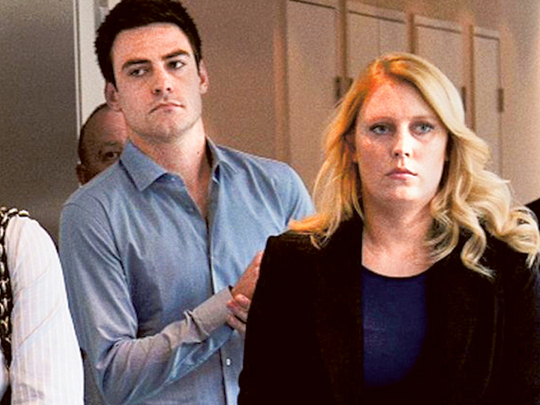
Sydney: An Australian High Court ruling on Wednesday opened the door for a radio station at the centre of a royal hoax call controversy to face penalties including losing its licence.
Sydney station 2Day FM endured a global backlash after Indian-born nurse Jacintha Saldanha killed herself in 2012 after transferring a prank call by two DJs to staff caring for Prince William’s wife Kate who was suffering from severe morning sickness.
Mel Greig and co-host Michael Christian had posed as Queen Elizabeth II and Prince Charles on the phone to the London hospital and were able to get details of Kate’s condition on air.
Saldanha left a note blaming Greig and Christian for her death. Both DJs apologised for their actions and the station’s owner Southern Cross Austereo later donated Aus$500,000 (Dh1.4 million or US$450,000) to the nurse’s family to “help them in the future”.
Media watchdog the Australian Communications and Media Authority (ACMA) previously ruled that the station had breached surveillance laws by broadcasting the call without the consent of the other party.
It prompted Southern Cross Austereo to take action against the ACMA in the Federal Court which found the authority did not have the power to determine matters of law.
But that was overturned by the High Court this week, paving the way for a possible penalty against the station, which could include suspending or cancelling its licence.
“This decision is welcomed by the ACMA,” said the watchdog’s chairman Chris Chapman.
“It obviously provides clarity regarding the operation of the licence condition that prohibits broadcasters from using their broadcasting service in the commission of an offence.”
But Southern Cross Austereo said that allowing ACMA to judge the criminal guilt of broadcasters was a “serious defect in Australian broadcasting law”.
It said police had concluded their investigations into the prank call recording and found that it did not breach state or federal surveillance laws or any other law.
“Southern Cross Austereo will join with other broadcasters in seeking to have the law changed as a matter of urgency,” it said.












